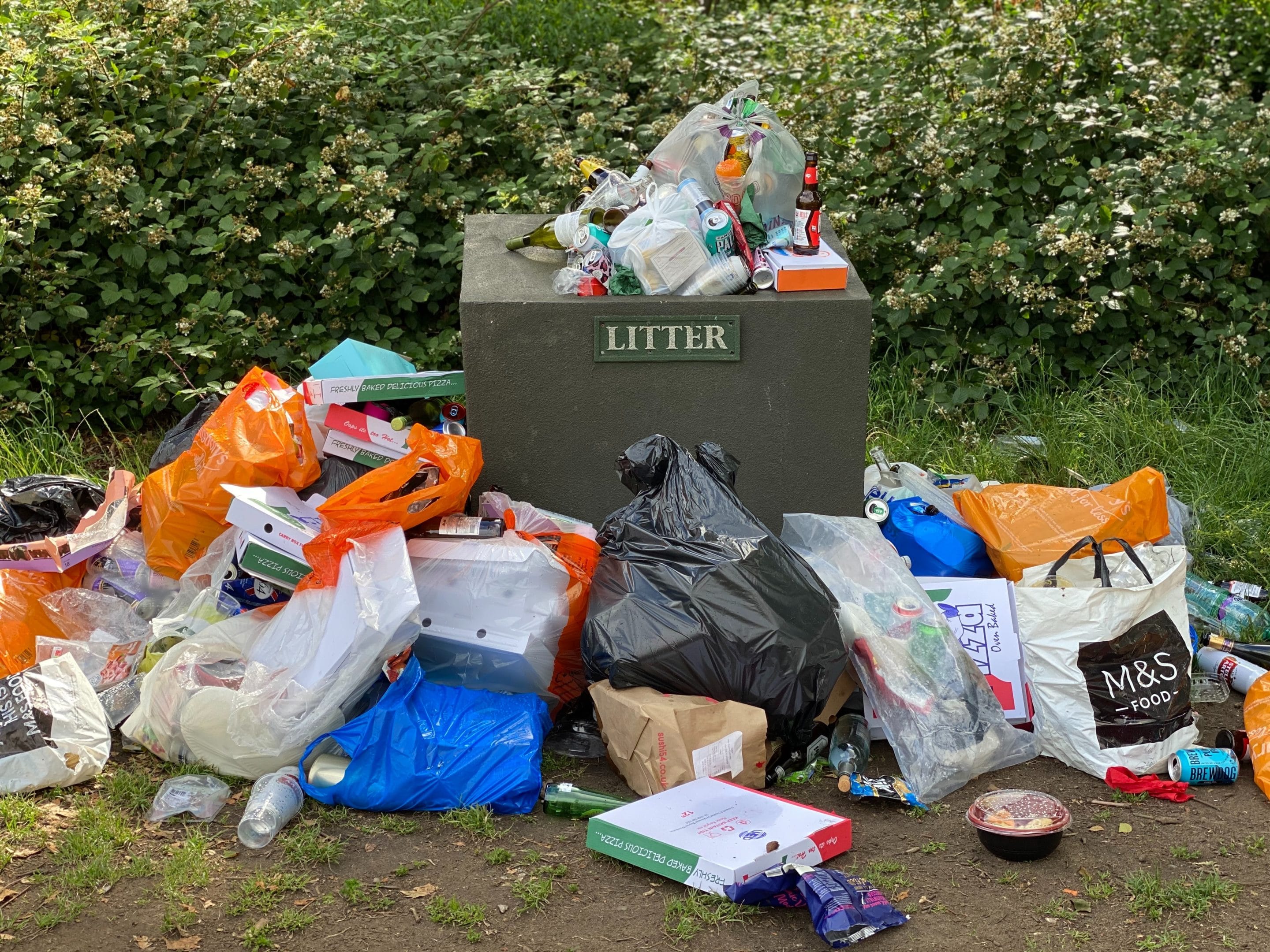The UK is lucky enough to have clean water, diverse landscapes, beautiful countryside, rolling hills, coastlines, and seas. The quality of the environment around us has been found to have a direct impact on an individual’s health and well-being both physically and mentally. However, often towns, cities and our stunning countryside is blighted with litter. 81% of people are angry and frustrated by the amount of litter lying around across the country. Likewise, 28-30% of people perceive “litter and rubbish lying around” to be a problem in their area.
Independent charity Keep Britain Tidy, reported that there are more than 30 million tonnes of litter dropped every year across the UK. This costs taxpayers over £1 billion a year on street cleaning. The Department for Environment Food and Rural Affairs reported that this cost was on average £28 per household. Furthermore, Highways England spends at least £6 million a year on collecting litter from the Strategic Road Network.
What Is Litter?
Litter has no definitive description, but it includes anything from a chocolate wrapper, bag of rubbish, or cigarette butt. According to Keep Tidy Britain, the most common litter is drink cans, bottles, fast food packaging, and cigarette butts. Regardless of type, litter can take decades to decompose, causing harm to wildlife and attracting vermin.
The Impact Of Litter
Environment
Litter not only impacts animals and injures wildlife, but can pollute waterways, and even harm humans. The RSPCA receives on average 7,500 calls a year about litter-related incidents impacting animals. Furthermore, in a recent study, analysing blood samples from 22 anonymous donors, 17 people were found to have plastic particles in their bloodstream.
Crime
Research has found a link between deprivation, crime, and litter. 28% of areas that were the most deprived fell below an acceptable standard for litter. Additionally, it was found there was a higher crime rate in areas with rubbish, graffiti, and fly-posting, and less in the cleanest streets.
House Prices
Surveys have revealed that living in a neighbourhood that is scattered with litter can reduce your property price by 12%. On average this is a loss of around £21,000, caused simply by rubbish outside your home.
Street Cleaning
Street cleaning involves various strands of activities connecting to the cleanliness of our streets. These can include street sweeping whether this is manual, or machine-based, car park cleaning, fly-tip removal, the removal of graffiti, litter picking, weed spraying, dog bin emptying, chewing gum removal, and flyposting. These activities can often be overlooked however, when not completed, the evidence is visual and can be substantial. Therefore, leading to differences in quality of life and the overall aesthetic of towns and cities.
What Can We Do To Help?
There are a variety of things we can do as humans to ensure our streets, towns, cities, and countryside stay clean and hygienic for everyone:
- Dispose of rubbish responsibly including chewing gum
- Recycle when possible
- If you smoke dispose of the bud correctly
- If you can’t find a bin, take your rubbish home
- Dispose of larger items responsibly by taking them to your nearest waste recycling centre
- Report any concerns to your local council
- Join your local litter picking group
- Clean up after your dog correctly
- Speak up if appropriate if you see someone disposing irresponsibly
Powerful Road Cleaning with Mac’s Truck Rental
Litter is an avoidable problem, and we all have a responsibility to help address the issue. Our actions, or inaction, to fight litter affect us all and will have an impact on generations to come.
Waste management across businesses varies, depending on industries and type of waste. Whether operating in airports, at construction sites, or for local council use, Mac’s Trucks Rental has a road sweeper for you.
Including features such as simultaneous sweeping brushes and flexible washing hoses to make the job easier. We pride ourselves on providing a quality product which is why all our vehicles come from leading brands such as DAF, Volvo, and Mercedes. Let’s look after our planet together, contact us today got all your road sweeper lorry requirements.
